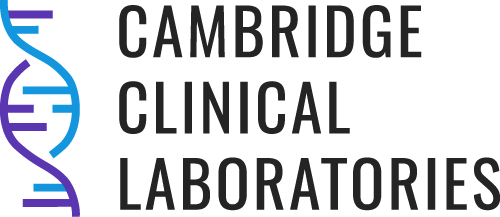Taking five with Dr Tony Cooke, CCL CEO
It has been almost a year since we last spoke with Cambridge Clinical Laboratories CEO, Dr Tony Cooke. We take five to find out what life, for this leading diagnostics lab, looks like post Covid.
When we last spoke, in August 2021, we discussed Covid travel testing, fertility testing, and Next Gen sequencing. How have things moved on?
As expected, travel testing, which the Government had said would last until Easter, stopped in February. Our focus then moved onto introducing new cancer diagnostics to the UK market, which we had been planning really since 2019 (pre Covid).
There are different drivers now in the marketplace post Covid. The NHS has a massive backlog, people are having big problems seeing their GPs, and there is a lot of people who didn’t access diagnostics during Covid. But also, public awareness of testing is so much more than it was pre Covid. There is a willingness now to take control of one’s own health. So, the landscape for diagnostic testing is much different to what it was two years ago.
We are looking at the gaps in NHS provision. The NHS only provides screening programmes for certain cancer types – breast and cervical specifically, colon a bit with FIT testing. Screening programmes for colon cancer for example don’t tend to start till you hit your 50s. If you have a genetic predisposition you might want to start being screened earlier.
This year, for example, we have acquired tests by Proclarix (delivers a risk score for prostate cancer) and Oncimmune (an early lung cancer detection test). We are building them, and others, into our portfolio and can offer them privately through private health care and online providers. High street pharmacies are also looking at introducing this service too. We’re in discussions with NHS innovation to see if this testing can help speed up their process and reduce their backlog.
We’re very close to introducing eight new tests, including a range of new early detection cancer diagnostic tests and a first IVF test. They are not to replace MRIs, CT scans, cystoscopies etc… but they provide an extra set of data that a doctor can use to determine the cause of action. We’ll introduce most of these tests by September.
With our work in Next Gen sequencing we’re looking at pre-disposition testing - identifying if you have a genetic predisposition that gives you an increased risk of the cancer starting earlier. If so, you will need to be tested and monitored earlier – especially helpful if you have a family history. Know what your risk is enables you to make the appropriate changes to lifestyle or surveillance / early screening.
CCL is moving more into the personalised medicine area – we’re looking at the online providers who go direct to consumer. We think with sufficient back up from genetic counselling and cancer specialists we can move past needing to see a GP, which is difficult at the moment, and help people find an alternative way to manage their health.
In February 2022 you were announced as Chair of the Scientific Advisory Board for the Laboratory and Testing Industry Organisation (LTIO). How is this role and organisation evolving?
The LTIO is a new independent industry body which started as a product of the Covid testing era where many more labs set themselves up. We’re looking at whether we as a whole can supplement the NHS to help them get through their backlog by running home testing programmes. Also to bring the UK private testing side of the UK up to a constant standard. Those who are members were generally around pre Covid.
My role, at the LTIO, is to ensure the standards of the science is good, working with the bodies UCAS and MRHA. It is a voluntary role.
When you look at the companies who started during Covid there were people who started just for the money. They’ve gone. The ones who are left are those who worked within quality standards. The NHS has a massive backlog, it needs additional testing and we, as a collective, are in a great position to help. That’s what we’re working towards. Together we have one voice on how the private testing labs in the UK can support our healthcare system.
What does the future look like for CCL?
Expansion, launching clinics / GP services, we may merge – we’re talking to a local company where we can benefit by working together. We’re at the cusp of big change. We’re getting to where we wanted to be in 2005 when we started the business – the vision of the company.
What are you most excited about?
The possibility of merging and growing the business – we need to be bigger. We’re limited in the facility we have at the moment, so we welcome opportunities to expand. Also going into new areas like IVF and gastro – they have such need and are great opportunities for us. Getting out of Covid and being able to do this great work we’ve been wanting to do for years, I’m excited to see the difference we can make.
What are you most proud of?
The team. How well they have worked – they’ve been up against it these last two years. I think they’ve quite enjoyed the challenge; it has been stressful but so rewarding. They’ve been committed, and they’ve really worked as a team. I can see how they’ve all developed in that time. I couldn’t ask for a better work culture, than the one at CCL, or better people.

